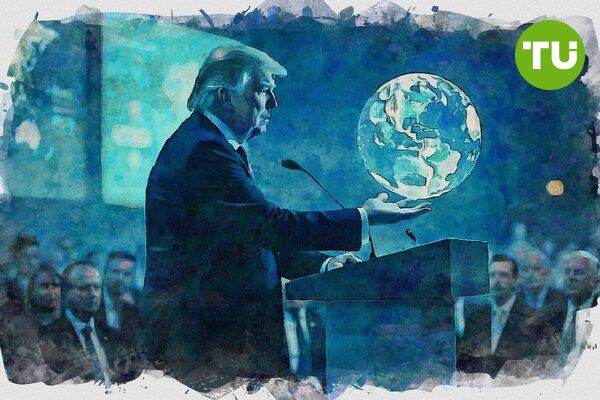JPMorgan increases recession risk to 60% amid Trump tariff policies
 JPMorgan warns Trump tariffs could push global economy into recession
JPMorgan warns Trump tariffs could push global economy into recession
JPMorgan’s chief global economist, Bruce Kasman, has issued a grim forecast regarding President Donald Trump’s aggressive tariff policy, warning that the global economy is facing a significant downturn.
In a research note published Thursday, Kasman and other economists at JPMorgan raised the probability of a global recession from 40% to 60%, in light of the sweeping 10% tariffs announced on Wednesday, which target countries including China, Japan, and the European Union, reports Business Insider.
The tariffs, dubbed “Liberation Day” by the administration, are part of Trump’s broader effort to address trade imbalances with foreign partners. The new duties will affect a wide array of imports, including everyday goods such as coffee, sugar, apparel, and even major items like cars and appliances. For countries with persistent trade deficits with the U.S., the tariffs will be even higher, compounding the economic impact.
Tariffs as a Tax on Consumers and Businesses
JPMorgan’s analysts caution that these tariffs represent a de facto tax increase on U.S. households and businesses, raising the average tax rate by approximately 22 percentage points to an estimated 24%. This would equate to about 2.4% of the U.S. GDP and could have effects similar to the largest tax hikes since World War II. The bank’s economists emphasize that the economic fallout could extend beyond the U.S., with retaliatory tariffs and disruptions to global supply chains exacerbating the damage.
“Disruptive U.S. policies have been recognized as the biggest risk to the global outlook all year,” the research note reads. “The latest news reinforces our fears, as U.S. trade policy has turned decisively less business-friendly than we had anticipated.”
The Path to Recession
The new tariffs come on top of previous trade measures, further elevating the risk of a recession in the U.S. and potentially the global economy. JPMorgan has adjusted its forecast to reflect a 60% chance of a recession this year, a stark increase from the earlier 40%. However, the economists also acknowledge that this outcome is not inevitable.
“Beyond the obvious point that policy actions may change in the coming weeks, we continue to emphasize that the U.S. and global expansions stand on solid ground and should be able to withstand a modest-sized shock,” the note concludes. Still, the uncertainty surrounding the full implementation of Trump’s tariffs leaves little doubt about the potential for a deep economic setback.
Additionally, the global economy faces rising uncertainty as U.S. President Donald Trump imposes broad import tariffs, including a 10% minimum on all goods and 20% on EU imports. China, Canada, and Taiwan have condemned the move, with Beijing vowing retaliation.













































































































































